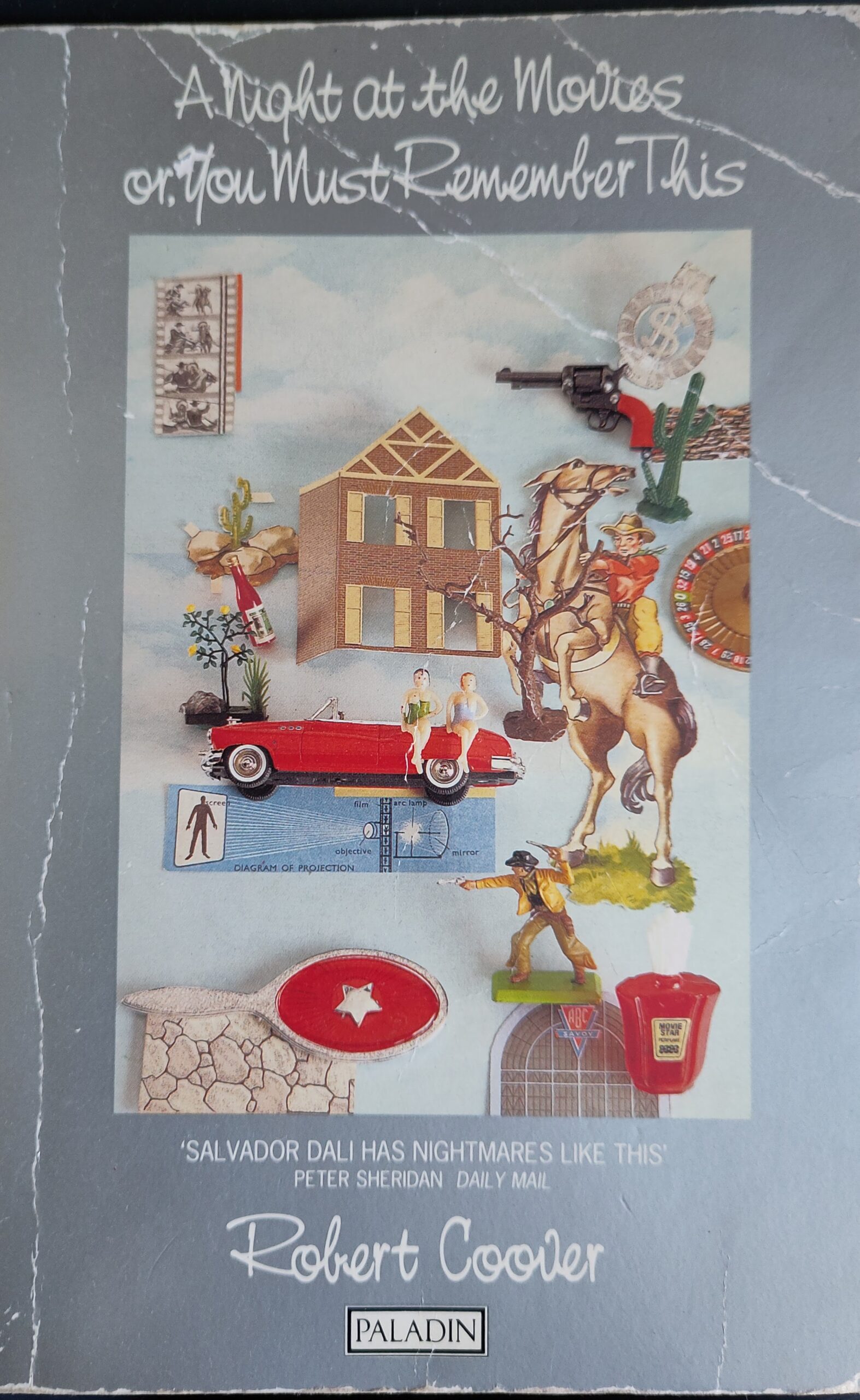quotation: robert coover

“Ah, well, those were the days, the projectionist thinks, changing reels in his empty palace. The age of gold, to phrase a coin. Now the doors are always open and no one enters. His films play to a silence so profound it is not even ghostly.”
– Robert Coover, ‘The Phantom of the Movie Palace’, in A Night at the Movies; Or, You Must Remember This
Not that this was the intention, but I couldn’t help feel a twinge of post-pandemic sorrow at this description of post-golden age cinema. Coover does something strange with nostalgia here, something that links up in my head with Andrei Tarkovsky, only briefly, for how it disrupts nostalgic expectations. That imperative to ‘remember this’ in the title of the collection of stories here carries more than a dash of stop me if you’ve heard this one, rather than the po-faced surrealism of Tarkovsky’s film.
The story I’ve quoted from follows the phantom projectionist through different film sets, genres and scenes, increasingly in the panic of a surrealist dream protagonist. As with the trapped characters in The Exterminating Angel, he seems unable to leave, or overcome an invisible barrier of script. Occasional opportunities to take control present themselves, but the frustration exposes some kind of ghost in the machine, a directorial presence, driving him.
It’s entertaining, probably intended as mostly apolitical, but still somehow arrives at an exposé of how invisible hands shape the reality of our world and our art. Throughout, Coover deceives you into thinking this is mere word play, such as in that subtly buried “to phrase a coin”. It isn’t wordplay for its own sake, however because the not-even-ghostly palace is very much a victim of technology, as the dominant mode of narrative consumption moves from film to television.
I think B.S. Johnson rants a little about this supplanting in Aren’t You Rather Young to be Writing Your Memoirs? There, he tracks the shift from poetic ballad to prose as the primary mode for story, forcing poetry to fall into a mode of lyric self-expression. I can’t say I’m fully convinced by this argument, even when I enjoy the big, historical, sweeping gesture of the argument. There’s an underlying flavour of emphasis on markets, which invalidates the pleasure we get from telling stories to friends over a drink, or the vicariousness of listening to people on the bus describe what x did to y when they were out on the weekend. Yes, in market terms, narrative commodities have been steadily supplanting each other in line with technological innovation, but that means the economic value of the stories we share in private aren’t accounted for. I like to think that’s the coin Coover is phrasing here, as he seems to celebrate and mourn the golden age of a cinema experience that’s too batshit to string into coherence.
Sadly, Coover passed away at the start of October, in a Warwick care home, aged 92. There’s a lovely obit here at Brown University, by John Caley. I saw him read up there, perhaps fifteen years ago, just a year into his experiment with virtual narrative at Brown University. With a grant of, if I remember correctly, a million dollars, he built a virtual class room at Brown University for students to generate story while wearing VR headsets. To us UK meatspace cadets, it sounded a lot like hokum, but I’m pleased to see the course continues under the name ‘Writing3D’.
These pioneering experiments in digital narrative seemed to want to manhandle the supplanting of writing story forms into e-texts that melded new technological structures with refreshed story structures. I think, sadly, what we’ve got now with the rise of ebooks and digital retail, more resembles phrased coins than coined phrases, but Coover’s legacy continues: a cutting edge of laboratory writing that pushes the boundaries of convention while, in the background, the market does what the market does.
